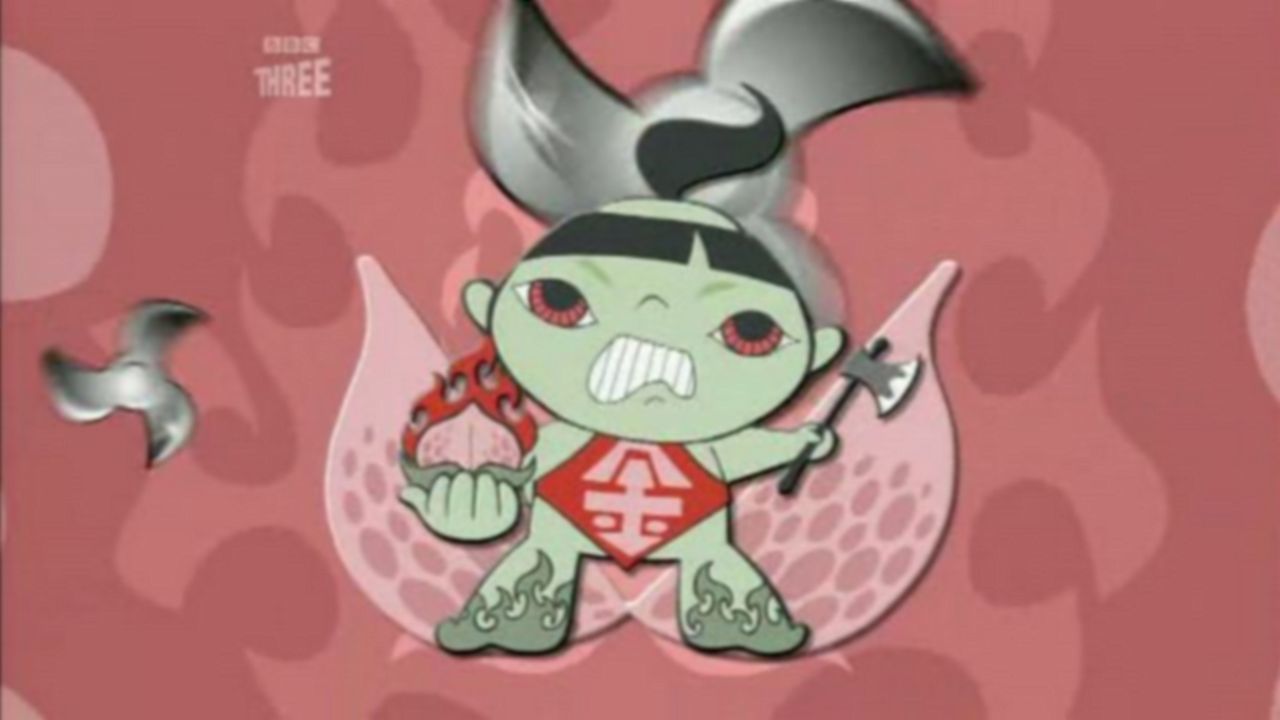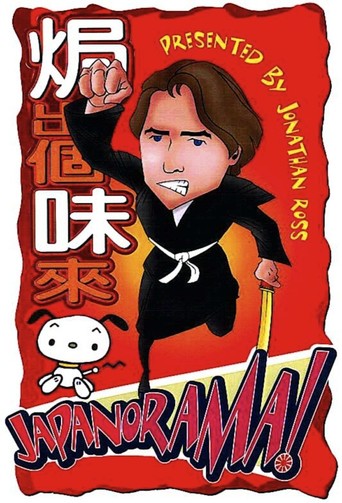PiraBit
if their story seems completely bonkers, almost like a feverish work of fiction, you ain't heard nothing yet.
Dirtylogy
It's funny, it's tense, it features two great performances from two actors and the director expertly creates a web of odd tension where you actually don't know what is happening for the majority of the run time.
Sienna-Rose Mclaughlin
The movie really just wants to entertain people.
Gary
The movie's not perfect, but it sticks the landing of its message. It was engaging - thrilling at times - and I personally thought it was a great time.
robotbling
(www.plasticpals.com) As its title makes clear, Japanorama was a BBC television show that focused on pop culture from the land of the rising sun. Hosted by Jonathan Ross, the first 6-episode series aired in 2002 followed by another two in 2006 and 2007. Being filmed at the turn of the millennium, when Japan truly earned its reputation as a robot kingdom, it wouldn't be complete without a segment on real robots. But with less than 10 minutes of footage split between two episodes, it's probably not worth tracking down the whole series unless you're a serious Japanophile.It begins with a look at robot pets starting with SEGA's silly Nekoro (neko being the Japanese word for cat). Priced at £1,000 ($1,600 USD), Nekoro may well be a double-entendre for "necro" since it has all the charm of a zombie kitty. SEGA continues to market cheaper versions of robot cats, dogs, hamsters, and more. A quick chat with Dr. Toshitada Doi (head of SONY's defunct robotics division) about his beloved AIBO and QRIO follows. Of all the television shows and specials we've reviewed so far, this is the only one to feature QRIO, but sadly it's a very short clip. It's unclear if the numbers are official, but the show claims that QRIO would be priced at around £20,000 (approx. $33,000 USD). They also claim that Honda had spent approximately $60M on their humanoid robot project.The segment concludes with brief soundbites from Dr. Kitano and Dr. Tatsuya Matsui. Thankfully things don't end there, because there's another segment on robots in the first episode of series two. It quickly covers a few major changes from the intervening years (such as AIBO's cancellation and ASIMO's new abilities). Unused footage from their interview with Tatsuya Matsui rounds out the segment. When asked when we can expect to have robots in the home or work place, Matsui predicts 5 to 10 years. He is arguably correct, if you consider the current state of affairs in South Korea. I wouldn't be surprised if it was this show that got Posy her cameo in Lost in Translation.Frankly, it's light fluff that barely scratches the surface of things, but it's still entertaining to watch.
db215
I love Japan. I've never been there, but I have loved what I have vicariously experienced through the media since 1994, when I was 10. My interest has recently culminated in acquiring a job in Iida starting in 2009. In preparation for this I have been reading and watching as much material as I can get my hands on.I found season two of Jonathon Ross' Japanorama, and thought it was worth a try. Like most people, I had previously though Ross to be a complete prick. However, this series is surprisingly fantastic.There's something about Ross' frankness about his own obsession with Japan, mirroring mine so well, that relieves from his usual facade: "If you strip away the contact lenses, the clothes, the £500 haircut, and the endearing speech impediment which I have so carefully nurtured over the many years I have been on television, you would see the otaku lurking within". It's almost as if as Ross has made this show for himself as much as for the audience. That's most likely not the case, but any presenter who can promote that feeling is a true professional.The series deals with some interesting aspects of non-mainstream Japanese life; from the predictable – anime, manga, garage kits, CosPlay and robots, to the radically alternative. Though I doubt they are truly underground, some of the cultural suggestions Ross gives are enlightened, and have introduced, at least to me, many artists and directors previously unknown.Not only is his knowledge of different media on display, but his skill as a showman and interviewer is clearly evident – much more so than in his trashy talkshows – it is clever and often witty. Sometimes hilarious, helped along by his ability to laugh at himself.Featured personalities include Mori Chuck, the ridiculous yet hilarious Hard Gay, Nigo, Junku Mizuno, Tadenobu Asano and Ichirou Mizuki – all worth investigating further.To digress, who are certainly not worth further investigation, however, are dull, frumpy, hippy flannels The Magic Numbers. Why this band's supporting tour of equally awful Franz Ferdinand was deemed suitable for inclusion is anyone's guess. "Ary ga toe Japan" blurts out frontman Paddington Bear. What a nonce. "There's 9000 people here to see the rock concert of the night," he says before the show, "so might as well get backstage and get ready". How? By ironing your duffle coat? Stay off my television you overweight flower-sniffing arsehole.Aside from that feces, the majority of the season was very, very entertaining. The tidbits of Japanese customs from Madame Shirota add the chance to laugh at another culture whilst at the same time realising how stupid our own is as well.Essentially, this is very good entertainment, but should certainly not be considered a guide to the Japanese way of life. These light-hearted glimpses at the other side of the world are just that, and that is why they are so good.
Cat-218
If you wanted to actually learn anything about Japan I wouldn't really watch this.I found the series as I am currently undertaking a research project on Japanese Horror. The episode on Japanese horror did not really help me, most of what was shown in the episode was also rather irrelevant. With only a couple of interviews with people related to the horror genre. And little talk of more than three or four films. I was hoping for it to contain a lot more on the subject.All of the episodes; although they contain many interviews etc are not very informative, and probably 20% of the episode are comprised of animated pictures to smooth the cut in between pieces.Definitely not a recommendation if you were seeking to learn anything.

